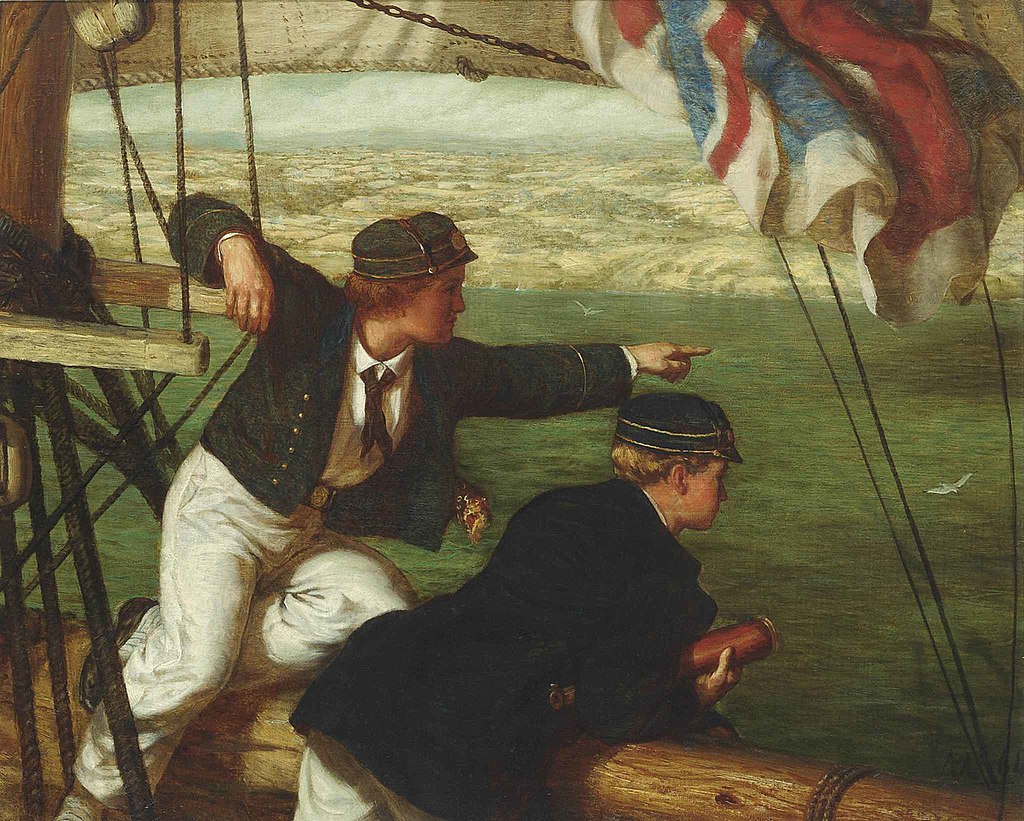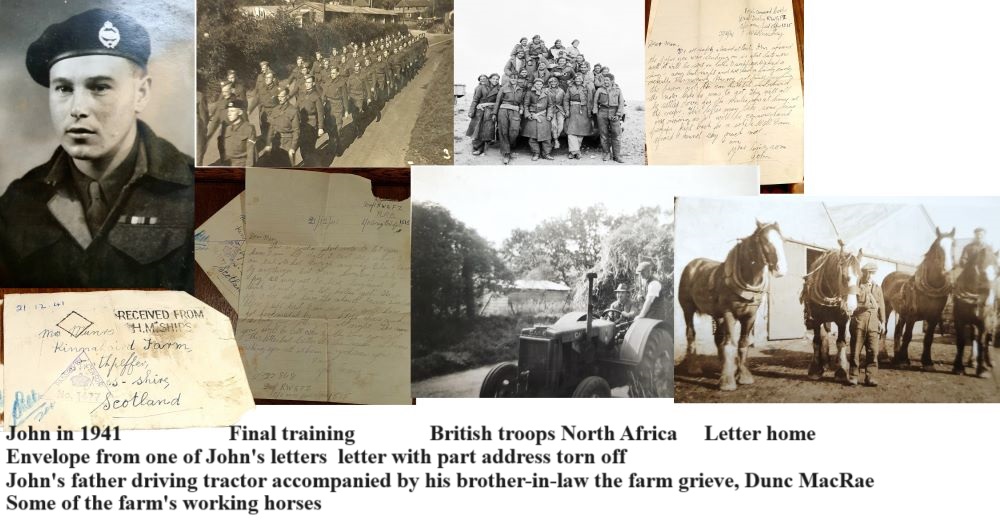Why?
The Bakhtiari people of Persia (Iran) were nomads from the west of the country. Bakhtiari I’ve read means fortunate (as in escaping danger) or the name might allude to their geographic location. The Bakhtiari were very active during Persia’s revolution of 1905-11 which resulted in the first parliamentary constitution in the Islamic world – until Russia smothered this infant democracy. In 1914, at the outbreak of the Great War, the Russian authorities in Persia instructed a young Scottish doctor, Elizabeth Ross, to abandon her work as a physician to Bakhtiari women and take over the running of a military hospital in Serbia – where she contracted typhus from her patients and died.

Russia was one of the European powers that had been sniffing around Persia for about a century to extend its influence in the east. Another was Britain for Persia provided a shortcut to that jewel in its imperial crown, India. Among other things. By 1905 the majority of Persians were desperate to be rid of foreigners speculating on how best to strip their land of anything profitable, including oil, but the Russian-backed shah did not share the peoples’ frustration, instead he encouraged foreign speculation with incentive tax breaks and private deals. He accumulated a fortune from selling off Persia’s assets; encouraging Russia and Britain to divvy up Persia (Iran) into three regions. In 1907 Britain took over the south of the country including the Persian Gulf, Russia got the north while the middle of this economic sandwich was classified as neutral.
It had been suspected for many years that oil could be found under Persian soil and confirmation from geological surveys led to secret negotiations between the shah’s inner circle and a British-based syndicate resulting in it being given drilling rights for several decades into the future. Rights to the country’s natural gas, petroleum and asphalt. The oil to be extracted lay in the territory of the Bakhtiari at Masjed Soleiman and an agreement was hammered out that gave the British group 16% of the profits and just 3% to the Bakhtiari. Naturally the Bakhtiari felt fleeced by this arrangement. One positive for them it might be argued was that with so much water contaminated with oil there were fewer breeding areas for mosquitos. Small compensation as polluted water wasn’t great for humans and animals either.
In 1909 a Scottish company, Burmah Oil, created the Anglo-Persian Oil Company. Burmah’s founder was David Sime Cargill from Maryton, Montrose who had been scouring the east for oil for several decades. Just five years before its start world war was looking very likely and the British navy sought to transfer from coal to oil. Burmah Oil won the supply contract. Then in 1914 the British government bought up 51% of Anglo-Persian Oil’s shares, effectively nationalising it. In 1954 Anglo-Persian became the British Petroleum Company, the forerunner of B.P.
Some people made vast fortunes out of Persia’s oil. Not many of them were Persians. The shah working hand in glove with Russia and Britain sucked wealth and economic opportunities away from the native majority. While the new oil industry provided jobs for some, many more were detrimentally impacted. Handicrafts long a source of income for Persians especially women who were highly skilled carpet makers were sacrificed on the altar of western capitalist trade. The lifeblood of Persia (Iran)was drained. Farms and villages reduced to sand disappeared altogether.
Corruption wasn’t confined to the shah and his family. Bribery and fraud were rife amongst the country’s tribal chiefs. Persia was a dangerous place to travel through with highway robbery endemic. Caravans of goods were frequently raided, villages and towns plundered. Every faction was armed to the teeth. Life was perilous. Rival tribes stole from each other. They in turn were robbed by regional governors who were robbed by the shah’s men. Britian knew which side its bread was buttered and backed the Bakhtiari holders of the land rich in oil but the chaotic state of affairs in the country gravely concerned the British government and commerce because lawlessness was an ever-present threat to their trade such as the movement of cotton and silver.
Dr Elizabeth Ross was working in Persia during the time oil was discovered. She had graduated in medicine in 1901, one of the first women in Britain to do so. She took up a few different posts in Colonsay, Oronsay, Tain and London but her sense of adventure and curiosity about the world, probably reflected in her speciality of tropical medicine, led to her taking up an appointment as a ‘Lady Doctor for the East’.
A sea voyage to Russia followed by hundreds of miles overland by horse-drawn carriages delivered Elizabeth to mystical and enchanting Tehran and then on to the medieval walled town of Julfa in difficult wintry weather conditions. In her memoir, A Lady Doctor in Bakhtiari Land, Elizabeth Ross draws comparisons between this exotic land and her homeland as, for example, similarities between the Bakhtiari tribal chief Samasam-os-Saltaneh and highland chiefs she had known back in Scotland. It struck her that in her part of Scotland two languages were widely spoken – Gaelic and English – while the Bakhtiari also communicated in dual languages, their own and Persian. The importance of education, both for girls and boys to some level, was shared by Scots and the Bakhtiari. As for Scotland’s reputed cold climate, Elizabeth had never at home encountered the freezing cold that froze her hot water bottle as she lay in bed or turn a cup of tea to ice that happened in Persia. On the other hand daytime temperatures soared as high as 160 degrees Fahrenheit under the Persian sun and nothing in Scotland comes close to that either.
At Dehkord, “a dreary little townlet in the midst of a desolate district” she settled. The town made up mostly of mud houses had few gardens to soften the landscape and there was little in the way of agriculture but the surrounding countryside was thick with nut trees and figs. Out among the Bakhtiari hills ancient forts reminded Elizabeth of Knockfarrel, the iron age hill fort on the Cat’s Back, the distinctive range between Dingwall and Strathpeffer. Unlike Knockfarrel the Persian hill forts were only accessible by ladders and ropes and yet accessed they were by Bakhtiari shepherds for up there the land provided excellent fertile grazing for their herds. So rich were those eyrie pastures that sheep would sometimes have two seasons of lamb in a year. Here, then, was where the woman they called Bibi Golafrus (blazing flower) or Bibi Doctoor (Bibi being a polite title for a woman) settled into her work with the women of the Bakhtiari.
While Elizabeth Ross’ experiences of Persia are little known those of the 1st Marquis of Kedleston, George Curzon, a British aristocrat and Tory MP who was in the country for a mere three months attracted lots of attention. While Elizabeth had gone to Persia to help its people Curzon set out to civilise them with British values. While Elizabeth recognised much to admire in Persia’s people Curzon dismissed them as “consummate hypocrites, very corrupt, and lamentably deficient in stability and courage” – and it was the work of the British to transform them into a race of gentlemen. Dr Elizabeth Ross condemned his views as ignorant.
Polygamy was practised among the Bakhtiari and it might be surprising that the devoted Christian Elizabeth Ross far from condemning it saw how it might provide care and shelter for older women, that polygamy did not involve the hypocrisy of much monogamy that vilified children born outside marriage as illegitimate and turned a blind eye to married men taking multiple sexual partners in the form of paid prostitutes.
With Bakhtiari men often away from their families their women tended to take on greater responsibilities than their British counterparts. At the time Elizabeth lived among them the Bakhtiari were less nomadic than previously but men were often away such as on military campaigns or other business. Women, too, were important economically to the tribe through their expertise as carpet weavers – carpets were a major source of revenue for the Bakhtiari – and because of their status Bakhtiari women enjoyed greater freedom than their urban counterparts who endured considerable patriarchal control and were universally veiled.

Elizabeth provides detailed descriptions of the appearance of the Bakhtiari women she lived among – how they had
“long, dark silky hair parted in the centre and the front half of hair tied under the chin with the rest plaited down the back.”
Hair was decorated with strings of beads and gold coins strung across the forehead – heavy to bear, depending on their number. A silk scarf of scarlet, green, cerise or purple was wound around the head and neck and on top of this they wore a black handkerchief and veil (chador). Hair was highly prized, the darker the better, so blonds both adult and children, had their hair darkened with henna or indigo and hair was lengthened with what we call hair extensions.
Women’s appearance was highly colourful. Their silk shirts, like their scarves, in strong shades of colour were topped with waistcoats and coats for warmth. Trousers were close-fitting and worn under embroidered linen petticoats, “pleated and fastened around the hips.” As we’ve seen nights could be very cold and clothes were worn all the time, day and night, but khan’s wives at the very least, changed their outfits weekly, following a bath.
Men’s dress was more monochrome. Their shirts not silk but muslin or linen and their coats usually sheepskin, not brocaded velvet that was favoured by women. While most Persian men wore black hats the Bakhtiari’s hats were tall, oval and white. As for children their clothes were smaller versions of adults; girls and boys dressing the same until about the age of 11 so girls weren’t restricted by skirts when travelling through the region.
Dr Elizabeth found opium addiction and dependency on morphia pills to be rife among the Bakhtiari and whooping cough, for some reason, affected boys more than girls. Elizabeth’s work was mainly limited to the wives of khans so, of course, there were other doctors administering to the people – native healers known as hakims who were experts in herbal medicine.
While the life of the Bakhtiari might seem drawn from a past age the tribe were significant players in the drama of Persian politics and government into the 20th century. With the discovery of oil in their land they gained international prominence for a time but the growing power of the Anglo-Persian Oil Company proved too much for the Bakhtiari to contain. Their khans were inveigled into complex financial deals that were their undoing. Their tribal lands came to be ravaged by industry with the sinking of oil wells, an oil refinery and one-hundred-and-forty-mile pipeline to the Persian Gulf. Within 30 years Persia would be officially known as Iran. By then several of the tribe’s leaders were dead, executed to curtail their influence by competing interests. The Bakhtiari that Dr Elizabeth Ross had known would be swept away. She, too, would be gone.

Elizabeth left Persia for a short time because of her failing health. She worked briefly as a ship’s doctor but was back in Isaphan in April 1914. The following year and into the Great War, the Russian authorities pressurised her to go to Serbia to take charge of the Scottish Women’s Hospital in Kragujevac where she volunteered to work in the typhus wards and soon Dr. Elizabeth Ross herself contracted the disease and died on her 37th birthday, on 14 February 1915.
The answer to the title question is of course they all wanted something Persia had to offer. The good doctor went to be an asset to Persians. Curzon and BP’s forerunner went to divest Persia of its assets.















